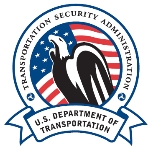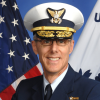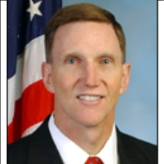The Transportation Security Administration (TSA), an agency in the Department of Homeland Security, is responsible for protecting the nation’s transportation networks from attack. Specifically, it safeguards airports and airplanes, mass-transit systems, highways, seaports, railroads and buses. The TSA has been inundated with charges of ineptitude and corruption during its short lifespan.
In March 2003, oversight of the TSA was transferred to the Homeland Security Department, which was created the prior November. In addition to weathering numerous controversies, the TSA has had four administrators in just over six years. At least three bills have been introduced to eliminate the agency’s many perceived deficiencies, but none have passed.
- The National Explosives Detection Canine Team Program trains dogs and handlers to sniff out bombs or other dangerous materials.
- After the Sept. 11 attacks, the TSA severely limited flights to Ronald Reagan Washington National Airport in Washington, D.C., as part of its DCA Access Standard Security Program (DCA is the airport’s code). Each day, a total of 48 arrivals and departures are permitted at the airport. Arrivals may only come from 20 so-called “gateway” airports, with planes, passengers and baggage thoroughly inspected before they depart. The TSA also runs advance background checks on all passengers and crew. Each flight departing for Reagan National Airport must have an escort known as an “armed security officer” onboard.
- The Office of Law Enforcement provides an advanced self-defense course to flight and cabin crewmembers through its Crew Member Self-Defense Training Program.
- Trained flight crew members may use firearms to defend against “an act of criminal violence or air piracy” under the TSA’s Federal Flight Deck Officer Program.
TSA Backs Off Registered Traveler Fee Hike
(by Dan Schlossberg, ConsumerAffairs.com)
- Table of Contents
- Overview
- History
- What it Does
- Where Does the Money Go
- Controversies
- Suggested Reforms
- Comments
- Leave a comment


Peter V. Neffenger, who is currently vice commandant of the U.S. Coast Guard, was named on April 28, 2015, as President Barack Obama’s nominee to lead the Transportation Security Administration (TSA).
Neffinger was born in 1955 in Salem, Ohio, and grew up in Carlisle Township in a family of eight headed by Carel and Katharine Neffenger. He attended Keystone High School and went on to Baldwin-Wallace College (now Baldwin-Wallace University), in the Cleveland suburb of Berea. He spent his junior year in Europe before graduating in 1977 as an English major. He later earned an M.A. in business management from Central Michigan University; an M.A. in national security and strategic studies from the Naval War College; and a Master’s in Public Administration from Harvard.
Neffenger worked for a non-profit organization in New York after leaving college, but joined the Coast Guard in 1981, inspired by an uncle who had been a Coast Guard captain. He was commissioned an officer in 1982 upon completion of Officers’ Candidate School and was assigned to the cutter Gallatin, which was stationed in the North Atlantic Ocean. Among his responsibilities was intercepting Haitian refugees and returning them to Haiti.
Neffenger spent four years beginning in 1989 as the Coast Guard’s lone representative in American Samoa, helping that territory with its own ocean search and rescue service. In 1993 he was chief of the marine safety unit in Mobile, Alabama, and in that role assisted in the investigation of the September 22, 1993, Sunset Limited train disaster, in which an Amtrak passenger train plunged into Big Bayou Canot after a formation of barges had hit the railroad bridge minutes earlier. Forty-seven people were killed.
From 1999 to 2002, Neffenger was captain of the Port of San Francisco and in 2003 he became commander of the Los Angeles-Long Beach sector. He was responsible for Coast Guard operations in much of Southern and Central California and was captain of the Los Angeles-Long Beach port complex, one of the largest in the world. He was also federal maritime security coordinator and much of his time was spent on anti-terrorism issues.
Neffenger was transferred to Washington in 2006 as the Coast Guard’s budget officer. In 2008, he went home, becoming the commander of the Ninth Coast Guard District, based in Cleveland. There, he was responsible for the service’s operations from the boundary waters of Minnesota to the St. Lawrence Seaway.
He went on to serve as the Coast Guard’s director of strategic management and doctrine and by 2010 he was the Coast Guard’s deputy commandant for operations and deputy national incident commander and worked on much of that service’s response to the April 2010 BP Deepwater Horizon oil disaster in the Gulf of Mexico.
In May 2014, he was made vice commandant of the Coast Guard, that service’s No. 2-ranking officer, a post he held until his nomination as TSA director.
Neffenger’s second wife, Gail Staba, is a senior program officer for the Transportation Research Board of the National Academy of Sciences.
-Steve Straehley
To Learn More:
Official Biography (pdf)
Peter Neffenger, Coast Guard Vice Admiral From Cleveland, Tapped to Lead TSA (by Grant Segall, Cleveland Plain Dealer)
Elyria Native Tapped for Second-Highest Coast Guard Post Visits Baldwin Wallace (by Anna Merriman, Lorain Chronicle-Telegram)
Admiral Peter Neffenger Returns to Northeast Ohio to Head Coast Guard's Great Lakes District (by Robert L. Smith, Cleveland Plain Dealer)

It took three tries, but President Barack Obama finally got an appointment confirmed to head the Transportation Security Administration (TSA). After former FBI agent Erroll Southers’ nomination imploded over revelations that he accessed FBI databases for personal reasons, President Obama turned to Robert A. Harding, a major general who retired from the U.S. Army in 2001. But Harding had to withdraw his nomination after concerns were raised over his work as a defense contractor. So, finally, the White House turned to a veteran of the FBI, John S. Pistole, whose nomination was confirmed by the Senate on June 25, 2010.
- Latest News
- D.C. Public Schools will Teach all Second-Graders to Ride a Bike
- New Rule in Germany Limits Sales of Sex-Themed E-Books to 10pm to 6am
- What Happened to the 6-Year-Old Tibetan Boy the Chinese Government Kidnapped 20 Years Ago?
- U.S. Ambassador to Turkey Photoshops his Hair Color to Mock Turkish Mayor
- Mystery Artist Calls Attention to Unfixed Potholes by Drawing Penises around Them
The Transportation Security Administration (TSA), an agency in the Department of Homeland Security, is responsible for protecting the nation’s transportation networks from attack. Specifically, it safeguards airports and airplanes, mass-transit systems, highways, seaports, railroads and buses. The TSA has been inundated with charges of ineptitude and corruption during its short lifespan.
In March 2003, oversight of the TSA was transferred to the Homeland Security Department, which was created the prior November. In addition to weathering numerous controversies, the TSA has had four administrators in just over six years. At least three bills have been introduced to eliminate the agency’s many perceived deficiencies, but none have passed.
- The National Explosives Detection Canine Team Program trains dogs and handlers to sniff out bombs or other dangerous materials.
- After the Sept. 11 attacks, the TSA severely limited flights to Ronald Reagan Washington National Airport in Washington, D.C., as part of its DCA Access Standard Security Program (DCA is the airport’s code). Each day, a total of 48 arrivals and departures are permitted at the airport. Arrivals may only come from 20 so-called “gateway” airports, with planes, passengers and baggage thoroughly inspected before they depart. The TSA also runs advance background checks on all passengers and crew. Each flight departing for Reagan National Airport must have an escort known as an “armed security officer” onboard.
- The Office of Law Enforcement provides an advanced self-defense course to flight and cabin crewmembers through its Crew Member Self-Defense Training Program.
- Trained flight crew members may use firearms to defend against “an act of criminal violence or air piracy” under the TSA’s Federal Flight Deck Officer Program.
TSA Backs Off Registered Traveler Fee Hike
(by Dan Schlossberg, ConsumerAffairs.com)
Comments


Peter V. Neffenger, who is currently vice commandant of the U.S. Coast Guard, was named on April 28, 2015, as President Barack Obama’s nominee to lead the Transportation Security Administration (TSA).
Neffinger was born in 1955 in Salem, Ohio, and grew up in Carlisle Township in a family of eight headed by Carel and Katharine Neffenger. He attended Keystone High School and went on to Baldwin-Wallace College (now Baldwin-Wallace University), in the Cleveland suburb of Berea. He spent his junior year in Europe before graduating in 1977 as an English major. He later earned an M.A. in business management from Central Michigan University; an M.A. in national security and strategic studies from the Naval War College; and a Master’s in Public Administration from Harvard.
Neffenger worked for a non-profit organization in New York after leaving college, but joined the Coast Guard in 1981, inspired by an uncle who had been a Coast Guard captain. He was commissioned an officer in 1982 upon completion of Officers’ Candidate School and was assigned to the cutter Gallatin, which was stationed in the North Atlantic Ocean. Among his responsibilities was intercepting Haitian refugees and returning them to Haiti.
Neffenger spent four years beginning in 1989 as the Coast Guard’s lone representative in American Samoa, helping that territory with its own ocean search and rescue service. In 1993 he was chief of the marine safety unit in Mobile, Alabama, and in that role assisted in the investigation of the September 22, 1993, Sunset Limited train disaster, in which an Amtrak passenger train plunged into Big Bayou Canot after a formation of barges had hit the railroad bridge minutes earlier. Forty-seven people were killed.
From 1999 to 2002, Neffenger was captain of the Port of San Francisco and in 2003 he became commander of the Los Angeles-Long Beach sector. He was responsible for Coast Guard operations in much of Southern and Central California and was captain of the Los Angeles-Long Beach port complex, one of the largest in the world. He was also federal maritime security coordinator and much of his time was spent on anti-terrorism issues.
Neffenger was transferred to Washington in 2006 as the Coast Guard’s budget officer. In 2008, he went home, becoming the commander of the Ninth Coast Guard District, based in Cleveland. There, he was responsible for the service’s operations from the boundary waters of Minnesota to the St. Lawrence Seaway.
He went on to serve as the Coast Guard’s director of strategic management and doctrine and by 2010 he was the Coast Guard’s deputy commandant for operations and deputy national incident commander and worked on much of that service’s response to the April 2010 BP Deepwater Horizon oil disaster in the Gulf of Mexico.
In May 2014, he was made vice commandant of the Coast Guard, that service’s No. 2-ranking officer, a post he held until his nomination as TSA director.
Neffenger’s second wife, Gail Staba, is a senior program officer for the Transportation Research Board of the National Academy of Sciences.
-Steve Straehley
To Learn More:
Official Biography (pdf)
Peter Neffenger, Coast Guard Vice Admiral From Cleveland, Tapped to Lead TSA (by Grant Segall, Cleveland Plain Dealer)
Elyria Native Tapped for Second-Highest Coast Guard Post Visits Baldwin Wallace (by Anna Merriman, Lorain Chronicle-Telegram)
Admiral Peter Neffenger Returns to Northeast Ohio to Head Coast Guard's Great Lakes District (by Robert L. Smith, Cleveland Plain Dealer)

It took three tries, but President Barack Obama finally got an appointment confirmed to head the Transportation Security Administration (TSA). After former FBI agent Erroll Southers’ nomination imploded over revelations that he accessed FBI databases for personal reasons, President Obama turned to Robert A. Harding, a major general who retired from the U.S. Army in 2001. But Harding had to withdraw his nomination after concerns were raised over his work as a defense contractor. So, finally, the White House turned to a veteran of the FBI, John S. Pistole, whose nomination was confirmed by the Senate on June 25, 2010.
- Latest News
- D.C. Public Schools will Teach all Second-Graders to Ride a Bike
- New Rule in Germany Limits Sales of Sex-Themed E-Books to 10pm to 6am
- What Happened to the 6-Year-Old Tibetan Boy the Chinese Government Kidnapped 20 Years Ago?
- U.S. Ambassador to Turkey Photoshops his Hair Color to Mock Turkish Mayor
- Mystery Artist Calls Attention to Unfixed Potholes by Drawing Penises around Them





Comments